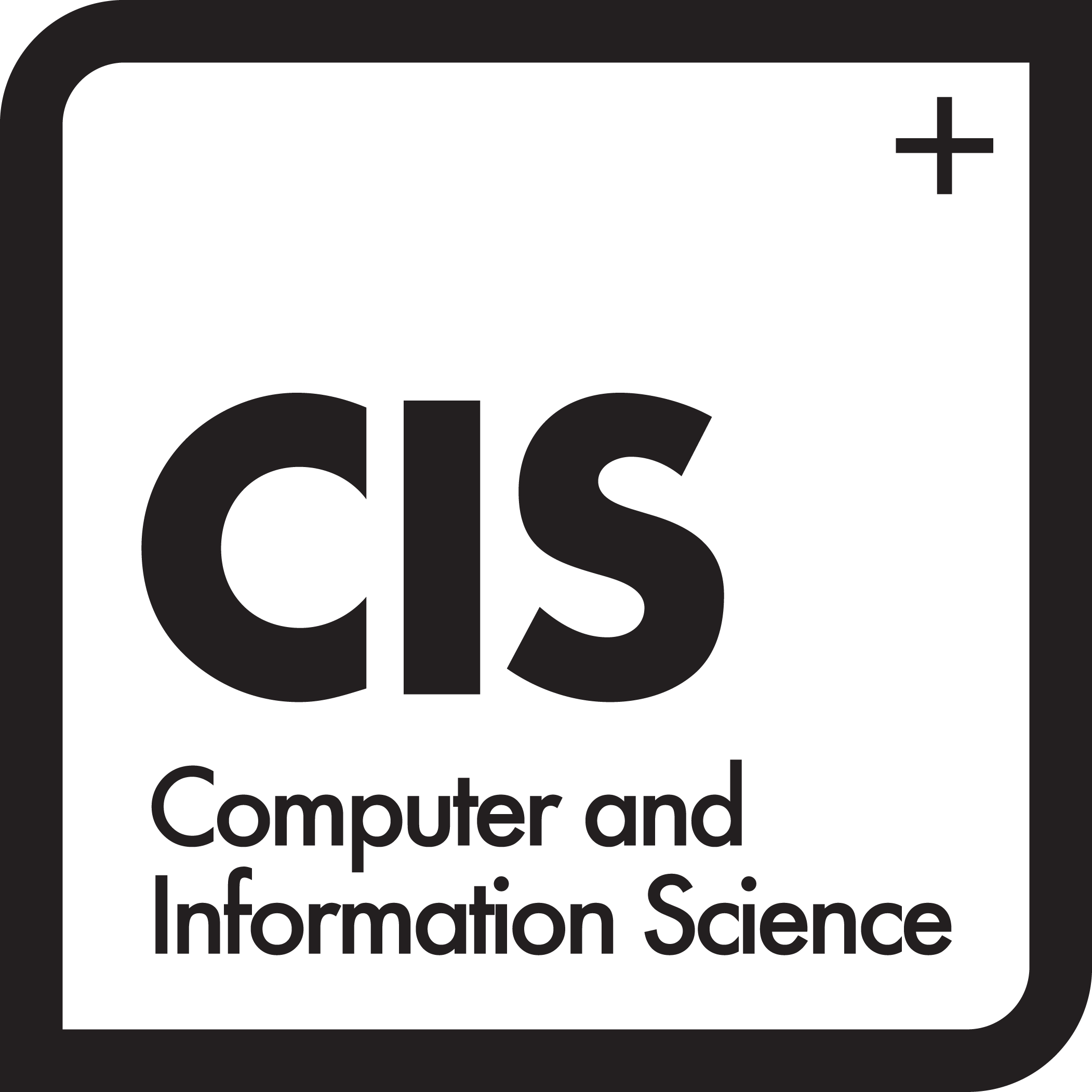
|
CIS 410/510Multi-Agent Systems |

|
Course Description
Welcome! CIS 410/510 is an introduction to Multi-Agent Systems (MAS), the sub-field of AI, with the focus on Game Theory and real-world applications. This course will introduce the basic ideas and techniques used for learning and planning in a multi-agent environment in which multiple agents with different goals interact with each other.Class Location: 253 STB
Class Time: Wednesdays and Fridays, 4pm to 5:20pm Instructor: Prof. Thanh H. Nguyen
Email: tnguye11 AT uoregon.edu
Office: Room 303, Deschutes Hall.
Office hours: Wednesdays and Fridays, 2:30pm to 3:30pm. I'll hold office hours either on Zoom or at my office. Please contact me (via email) if you would like to schedule a meeting.
Course Material and Syllabus: There are some optional textbooks for the course, including Multiagent Systems: Algorithmic, Game-Theoretic, and Logical Foundations by Yoav Shoham and Kevin Leyton-Brown and Security and Game Theory by Milind Tambe. I will post other references on Canvas.
A printable version of lecture slides will generally be available online within a day or two after the lecture. I do not make them available before class. Often the slides will not include all the information we discuss in class, so the printed slides are not a substitute for attending and participating.
Learning Objectives
The learning objectives of this course are:- to learn basic concepts and methods in multi-agent systems and specifically in game theory.
- to develop MAS-based applications for addressing real-world societal problems, in particular, designing game-theoretic models and solutions for these problems.
- to understand machine learning questions in game-theoretic settings, and how to deal with some of them.
- to understand strategic aspects in machine learning tasks, and how to deal with some of them
Draft Schedule (Subject to change)
| Week | Description |
|---|---|
| 1 (Sep. 27, Sep. 29) | Introduction , Linear program |
| 2 (Oct. 04, Oct. 06) | Normal-form games , Security games I |
| 3 (Oct. 11, Oct. 13) | Security games II , Behavioral game theory I |
| 4 (Oct. 18, Oct. 20) | Behavioral game theory II , Extensive-form games I |
| 5 (Oct. 25, Oct. 27) | Extensive-form games II , Coalitional games I |
| 6 (Nov. 01, Nov. 03) | Coalitional games II , Introduction to mechanism design |
| 7 (Nov. 08, Nov. 10) | Auctions I , Veterans Day |
| 8 (Nov. 15, Nov. 17) | Auctions II, Introduction to online learning |
| 9 (Nov. 22, Nov. 24) | Multi-armed bandits I, Thanksgiving |
| 10 (Nov. 29, Dec. 01) | Prediction Markets, Exam Review |
| Finals Week | Final exam: 14:45 Tuesday, December 5 |
Written Assignment
| Due date | Written Assignment | Note |
|---|---|---|
| 10/20 | Written assignment 1 | Normal-form games, security games |
| 11/03 | Written assignment 2 | Behavioral game theory, extensive-form games |
| 11/17 | Written assignment 3 | Coalitional games, auction games |
| 11/29 | Written assignment 4 | Auction games, online learning |
Programming Assignment
| Due date | Programming Assignment | Note |
|---|---|---|
| 10/11 | Programming assignment 1 | Zero-sum games |
| 10/25 | Programming assignment 2 | Strong Stackelberg equilibrium |
| 11/12 | Programming assignment 3 | Coalitional games |
Grading Policy
- Written Assignment: 40%
- Programming Assignment: 30%
- Final exam: 30%
Classroom Behaviors
All members of the class (both students and instructor) can expect to:Absences
This is a face-to-face course. Attendance is important because we will develop our knowledge through in-class activities that require your active engagement. We'll have discussions, small-group activities, and do other work during class that will be richer for your presence, and that you won't be able to benefit from if you are not there. Excessive absences make it impossible to learn well and succeed in the course. We know our UO community will still be navigating COVID-19, and some students will need to isolate and rest if they get COVID. Please take absences only when necessary, so when they are necessary, your prior attendance will have positioned you for success. Students with COVID are encouraged to seek guidance and resources at UO's COVID-19 Safety Resources webpageBarriers and Accommodations
My goal is a fully inclusive class, accessible to everyone. If you encounter or anticipate barriers to full participation and fair evaluation due to a disability, please communicate your needs to the instructor so that we can find a suitable accommodation. If you encounter or observe other impediments to full participation, for yourself or others, please share your concerns with the instructor. You are also encouraged to contact the Accessible Education Center in 164 Oregon Hall at 541-346-1155 or uoaec@uoregon.edu. The AEC offers a wide range of support services including note-taking, testing services, sign language interpretation and adaptive technologyAccommodations for Religious Observances
The University of Oregon respects the right of all students to observe their religious holidays, and will make reasonable accommodations, upon request, for these observances. If you need to be absent from a class period this term because of a religious obligation or observance, please fill out the Student Religious Accommodation Request fillable PDF form and send it to me within the first weeks of the course so we can make arrangements in advance.Academic Honesty
Academic honesty is expected and cases of suspected dishonesty will be handled according to university policy. In particular, copying someone else's work (including material found on the web) will not be tolerated. If solutions to assignments are obtained from outside sources, the source must be cited.Mandatory Reporter Status
I am a [designated reporter/assisting employee]. For information about my reporting obligations as an employee, please see Employee Reporting Obligations on the Office of Investigations and Civil Rights Compliance (OICRC) website. Students experiencing sex or gender-based discrimination, harassment or violence should call the 24-7 hotline 541-346-SAFE [7244] or visit safe.uoregon.edu for help. Students experiencing all forms of prohibited discrimination or harassment may contact the Dean of Students Office at 5411-346-3216 or the non-confidential Title IX Coordinator/OICRC at 541-346-3123. Additional resources are available at UO's How to Get Support webpage. I am also a mandatory reporter of child abuse. Please find more information at Mandatory Reporting of Child Abuse and Neglect.Acknowledgement
I would like to thank Ramakrishnan Durairajan for inspiring the design of this webpage.